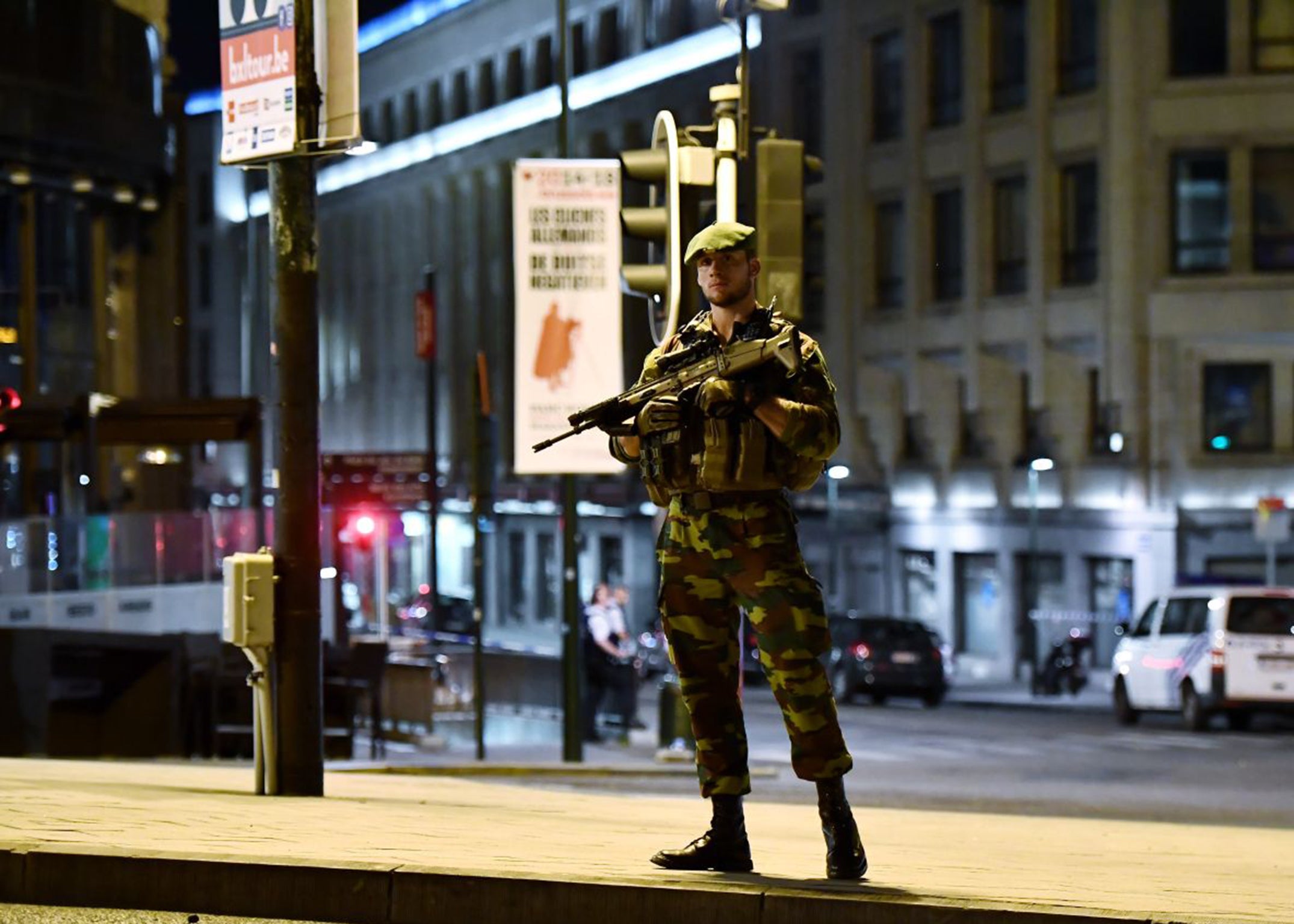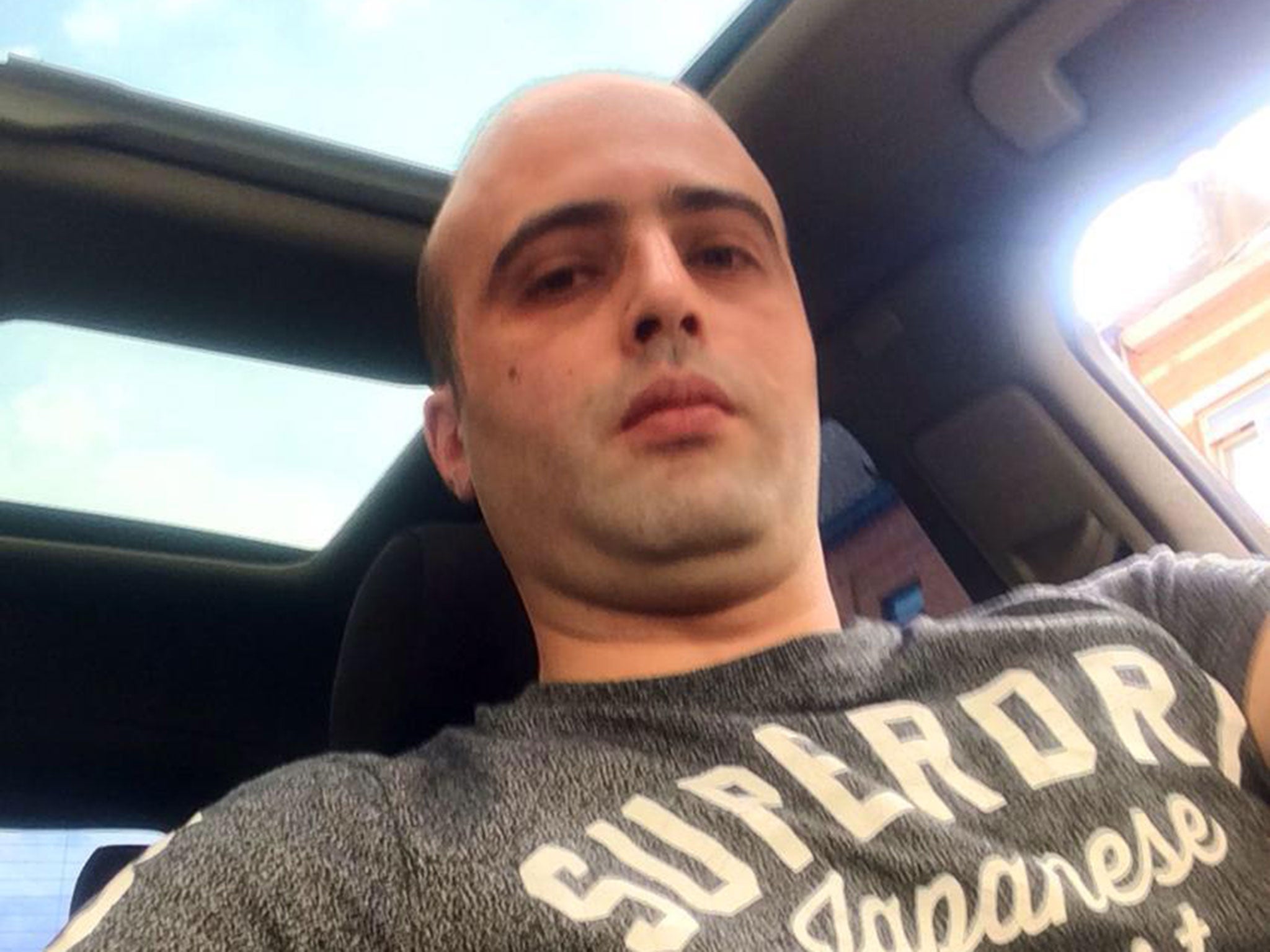Brussels explosion: Prosecutors say major terror attack at station averted after bomb packed with nails fails
Attacker identified as Isis sympathiser Oussama Zariouh, a 36-year-old Moroccan national from Molenbeek
Your support helps us to tell the story
From reproductive rights to climate change to Big Tech, The Independent is on the ground when the story is developing. Whether it's investigating the financials of Elon Musk's pro-Trump PAC or producing our latest documentary, 'The A Word', which shines a light on the American women fighting for reproductive rights, we know how important it is to parse out the facts from the messaging.
At such a critical moment in US history, we need reporters on the ground. Your donation allows us to keep sending journalists to speak to both sides of the story.
The Independent is trusted by Americans across the entire political spectrum. And unlike many other quality news outlets, we choose not to lock Americans out of our reporting and analysis with paywalls. We believe quality journalism should be available to everyone, paid for by those who can afford it.
Your support makes all the difference.An Isis sympathiser who attempted to bomb Belgium’s busiest railway station packed the device with nails and gas canisters, prosecutors have said.
The 36-year-old Moroccan national, identified as Oussama Zariouh, was shot dead at Brussels Central Station after the bomb ignited but failed to properly detonate.
Eric Van der Sypt, a spokesman for the federal prosecutor, said Zariouh entered the station at 8.39pm local time (7.39pm BST) on Tuesday, passing the ticket hall before approaching a group of passengers below the main concourse.
“After retiring a bit, he returned in the middle of this group at 8.44pm,” said Mr Van der Sypt.
“He grabbed his suitcase, while shouting and causing a partial explosion. Fortunately, nobody was hurt.”
The suitcase immediately burst into flames but did not explode, at which point the attempted attacker abandoned the burning luggage and moved towards a platform “in pursuit of a station master”.
“Meanwhile, the bag exploded a second time more violently,” Mr Van der Sypt said.
“The man then returned to the hall where he rushed to a soldier shouting ‘Allahu Akbar’.
“The soldier immediately opened fire and hit the individual several times. The latter died on the spot as a result of his injuries.”
The spokesman said that despite the double explosion, the incident could have been far worse and it was “clear he wanted to cause much more damage than what happened”.
Prosecutors said the man was not wearing a suicide vest or belt during the attempted terror attack, contradicting initial witness reports.
They are treating the incident as “attempted terrorist murder” and have appointed a specialist judge to the case.
Officials described the device as containing nails and gas cannisters, adding that Zariouh was “not known for terrorism”.
His home was being searched in the Brussels suburb of Molenbeek, which was home to several members of the Isis cell that launched the Paris attacks and previous bombings in Brussels.
Searches uncovered chemical substances and bomb-making materials indicating that Zariouh most probably made the explosive device in the property, prosecutors said.

“There are also indications that the suspect had sympathies for the terrorist organisation Isis,” a statement added.
Françoise Schepmans, the mayor of Molenbeek, said the attacker was known to authorities over drugs offences in 2016 but had not been flagged for extremism.
After convening an emergency meeting of Belgium’s national security council, the prime minister Charles Michel said a terror attack had been averted thanks to the rapid intervention by security forces.
Praising the professionalism of the SNCB and STIB forces in the face of an “extremely dangerous situation”, Mr Michel said the national threat level would remain on a level three out of a maximum four, adding: “In three years we have been confronted with several attacks or attempts and we say the zero risk does not exist.
“We have avoided an attack that could have been a great deal worse,” the prime minister said.
“We will not let ourselves be intimidated. We will go on living our lives as normal.”
Bruno Struys, a Belgian author who writes on Islamist fighters, said that Zariouh had lived in Belgium since 2002, was married between 2004 and 2007 and moved to Molenbeek in 2013.
His Facebook page, which had not been updated since May last year, showed a man believed to be Zariouh in a series of selfies taken at the wheel of a car.

It lists him as hailing from the coastal Moroccan city of Nador and a former student of the Mohamed I University in Oujda, where he graduated in 2002.
The page includes shared posts on Islamic doctrine, religious charities, civilian deaths in Syria and the alleged abuse of Muslims around the world.
A meme posted in the wake of the massacre at Charlie Hebdo’s offices in 2015 appears to reject the slogan “je suis Charlie”, which was used to express solidarity with the victims.
Along with Arab musicians, he posted a “like” for Canadian pop star Celine Dion.
Isis has not claimed responsibility for the attempted terror attack, which bore similarities to several attacks carried out in its name and followed the group’s call for global atrocities during the Islamic holy month of Ramadan.
The bomb used by an Isis supporter to kill 22 people at Manchester Arena was also packed with nails, while suitcase bombs were used in Isis’s previous attacks at Brussels Airport and Maalbeck metro station in March 2016.
Zariouh lived in the surburb of Molenbeek, which was home to terrorists including the perpetrators of the 2004 Madrid bombing, 2014 Jewish Museum of Belgium shooting, 2015 Thalys train attack and four members of the Isis cell behind the Paris and Brussels attacks.
Local reports said Zariouh was previously known for drug dealing, as were Paris attackers and Molenbeek bar owners Brahim and Salah Abdeslam, Manchester bomber Salman Abedi and Berlin attacker Anis Amri.
Analysts have warned of a growing “crime-terror nexus” after a report by the International Centre for the Study of Radicalisation (ICSR) found that more than half of known European jihadis had criminal histories, making them easy fodder for Isis recruiters offering “redemption” in the name of jihad.
Research by the Combating Terrorism Centre additionally found the majority of Isis recruits had not always been observant Muslims, were unemployed or students, and had an immigrant background.
Like Zariouh, numerous terrorists in Europe have had a Moroccan background, including all of the 2016 Brussels attackers, six of the Paris attackers, and an Isis supporter who killed a French police officer and his wife.
Several other terrorists behind recent atrocities in Europe have been of North African descent, including Algerian, Tunisian and Libyan.
The continent remains on high alert following Tuesday’s attempted attack in Brussels, the recent attacks in London and attempts in Paris.
Security was high around Belgian railway stations amid preparations for a Coldplay concert at the 50,000-seat King Baudouin Stadium.
Brussels Central Station reopened for Wednesday morning’s rush hour, with police and soldiers patrolling as burn marks remained on the floor.
The prime minister said extra measures were being taken to secure stations, public places and major events in Belgium, which is due to host a summit of European Union leaders on Thursday and Friday.
Additional reporting by Reuters

Join our commenting forum
Join thought-provoking conversations, follow other Independent readers and see their replies
Comments